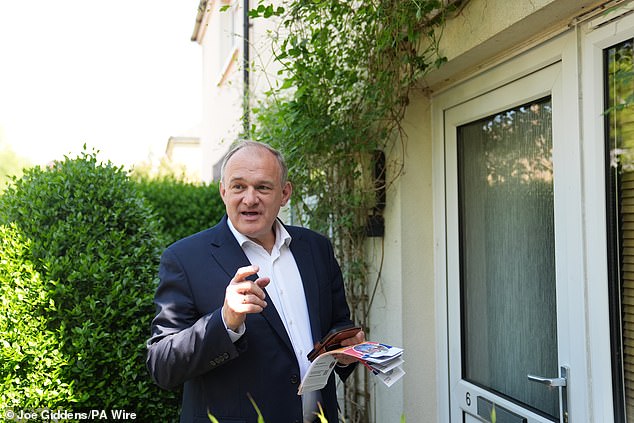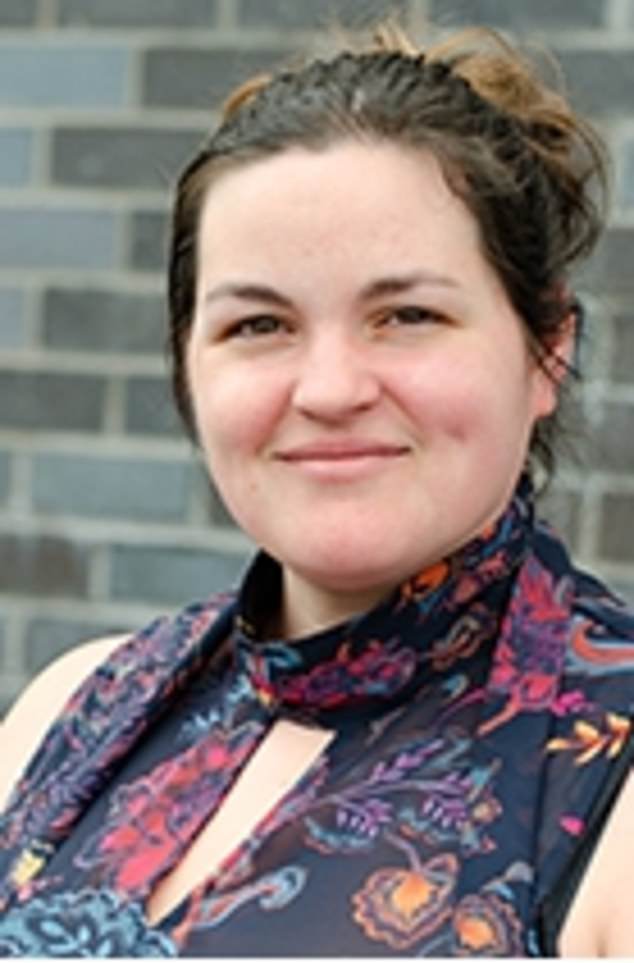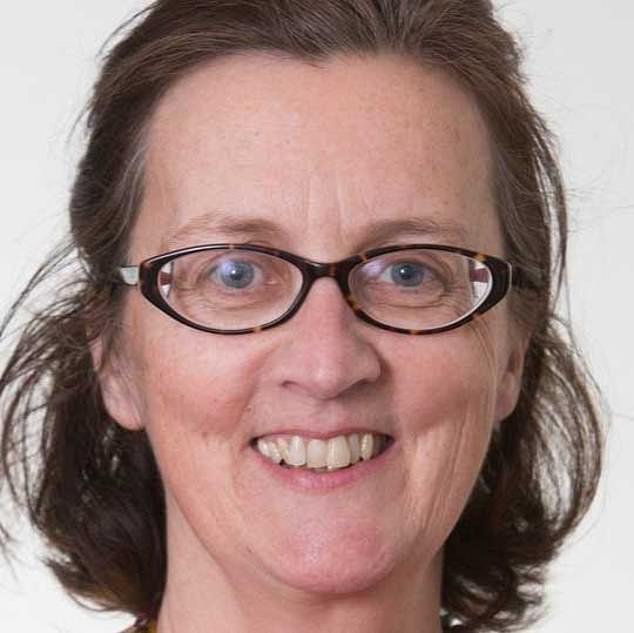The four-day working week hailed by its Lib Dem-run council as a success has been met with uproar from its constituents.
South Cambridgeshire district council became the first local authority to trial staff working 80per cent of their contracted hours for full pay as long as they maintained full productivity.
The council has said it expects to save about £400,000 annually due to through lower staff turnover and relying less on agency workers – the original dilemma which reportedly inspired the scheme.
But locals have hit out at the proposals ahead of a vote to make it permanent next week, saying they are fed up of phone lines going unanswered and waiting on responses to emails.
One resident told The Times that they found it unfair council employees were able to work four days a week when constituents had to work five to be able to pay their council taxes – that allegedly go up year after year.
Another said: ‘How can you do 100 per cent of the work in 80 per cent of the time? You can’t, it just shows how little the council expects of their staff. They are now doing 80 per cent of their job in 80 per cent of their time!’
One business owner believed the service the council provided had gone down, citing communication issues that they felt were down to the limited availability of council employees.
A resident survey found only 45 per cent supported the trial and said refuse collection, council tax services and the customer contact centre had all become worse in that time.

Lib Dem-run South Cambridgeshire district council carried out a two-year pilot to test the controversial four-day week and concluded it saved money without harming services (Leader Ed Davey pictured)

The council’s leader, Bridget Smith, dismissed calls for her to quit over the controversial issue of moonlighting erlier this year, saying she believed the council performed ‘outstandingly well’
The locals’ remarks come a week after the council released their survey assessing the scheme during its first 27 months, which was monitored by three universities.
They found that nine out of 24 council services improved, 12 remained stable and three declined.
The consultation response found that of the 13 services measured, nine got worse while four stayed the same, according to those who live in the area.
Those to suffer included bin collections, the communications service, licensing matters and environmental health.
A business survey found that of the ten services measured, one got worse, four stayed the same and five recorded no result. No increases in satisfaction for services were recorded.
Cambourne resident Jill Hyne, 79, said ‘if it was a private company then that’s fair, they decide the hours. But this is a council service with taxpayers’ involved’.
Tutor Wendy Lee, 54, added that she was unsure how the employees hours and work could be effectively monitored.
Despite locals’ concerns, there was 120 per cent increase in job applications and a 40 per cent fall in staff turnover.

Three universities monitored services during the first 27 months of the trial and said that nine out of 24 council services improved, 12 remained stable and three declined (Pictured: South Cambridgeshire council)

Independent councillor Dan Lentell put forward a motion calling for proper checks to be carried out about council staff having two jobs
There were some who did believe the trial to be effective, with one telling The Times: ‘They’re saving money and they’re doing it in a way so that the work hasn’t lost its productivity. I don’t care about the days they work as long as they’re building a long-term efficient workforce.’
In January, the council refused to ban moonlighting after it emerged one-in-six of their staff had second jobs on their allocated days off.
This is despite the time off being intended to ‘recover and re-energise’ from a more ‘intense’ week.
Members of the Lib Dem-controlled council’s cabinet insisted safeguards were already in place to prevent any staff taking jobs which represented a conflict of interest.
The council’s leader, Bridget Smith, also dismissed calls for her to quit over the controversial issue, saying she believed the council performed ‘outstandingly well’.
They are also now insisting that most of those with second jobs are waste workers who were already doing the extra work outside their contracted hours before the four day week was started.
But Independent councillor Dan Lentell submitted a motion calling for proper checks about second jobs to be put in place, claiming that ‘value for money’ was not being delivered if staff were using their day off to work for another employer.
Mr Lentell called for monitoring to guarantee staff followed a Code of Conduct for second jobs, and only did them if it did not ‘conflict’ with their duties or undermine public trust.

The trial of a four-day week in South Cambridgeshire has attracted criticism from the council’s Tory group leader Heather Williams
Elliot Keck of the Taxpayers’ Alliance said the survey results were ‘devastating’ and the response of residents had been ‘brutal’.
‘South Cambridgeshire council has nowhere to hide after this bruising consultation completely collapses its case for the four day week,’ he said.
‘Wheeling out yet another piece of propaganda masquerading as an independent report will fool no one, given the overwhelmingly negative response from residents and frosty reception from businesses.
‘Town hall bosses need to now face the music, apologise to local taxpayers and bring back the full-time council.’
Mr Keck further criticised the ‘supposedly independent’ report compiled by the three universities after a previous report was found to have been edited by the council’s chief executive.
Heather Williams, leader of the Conservative opposition, said the new report actually showed that resident satisfaction had fallen in every area since the trial began.
‘This reaffirmed my view that this is not something we should be doing at the council. It’s incredibly unfair that council tax is going up year after year,’ she told the Mail.

In 2023 it emerged that Liz Watts (pictured), the council’s chief executive, had helped to edit a supposedly independent report on the scheme
‘Now it’s going up to fund council officers not to work a full week. Residents aren’t council – we are legally bound to pay our council tax.
‘This has to stop. Residents have had their say and we have to take what they say seriously.’
In 2023 it emerged that Liz Watts, the council’s chief executive, had helped to edit a supposedly independent report on the scheme.
It also emerged that she had been working on her PhD during the four-day week.
The council have since said the ‘data from the trial … will be used in Liz’s research’.
Len Shackleton, a research fellow at the Institute of Economic Affairs, a free market think tank, told the Times there were ‘clearly benefits’ if staff were happier and stayed in their jobs.
But he also questioned whether this was due to workers improving because they know they are under scrutiny.
And he warned that rolling out the policy more broadly may also have an inflationary effect as workers in sectors where a four-day week is impossible may demand pay rises to compensate.
‘If it works for South Cambridgeshire, good for them. But if this is used as a template for every council across the country, you might run into problems,’ he added.
Defending the policy, council leader Ms Smith said South Cambridgeshire was ‘now offering more stable services, with improved wellbeing and performance’.
She added: ‘At a time when national satisfaction with councils is falling, our data shows we’re bucking that trend.’












